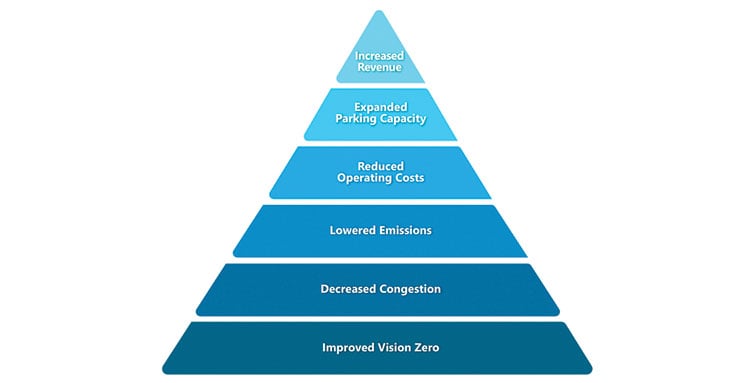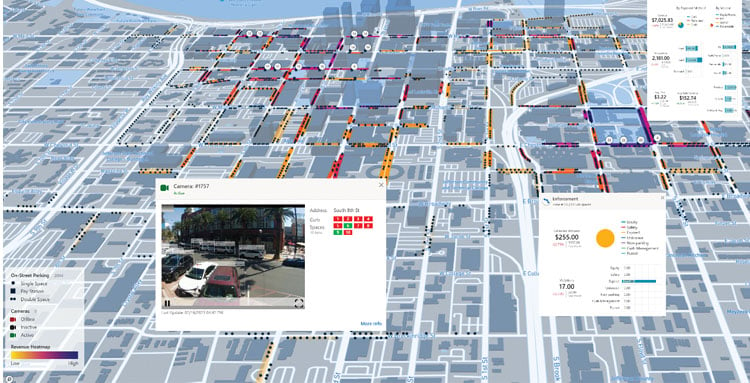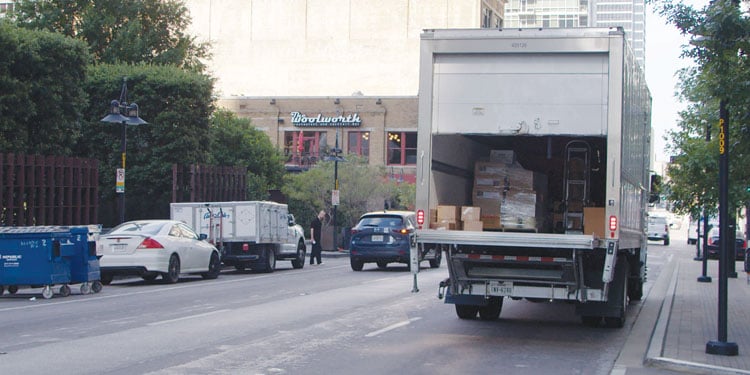ADVERTORIAL by Jordan Weiss
As cities expand and technology evolves, the influence of parking and mobility systems on urban life becomes increasingly critical. Congestion, safety concerns,
environmental issues, and economic challenges all converge around how urban spaces are utilized for parking and transportation. Umojo, a leader in urban mobility solutions, is at the forefront of driving innovative systems aimed at enhancing curb management and parking operations, ultimately creating safer and more efficient cities.
Urban areas are under growing pressure on limited curb space, driven by the rise of rideshare services, parcel deliveries, and the surge in food and grocery deliveries. These activities are becoming more short-term and transactional — people park for minutes instead of hours, businesses rely on the curb for transactions rather than in-store exchanges, and pickups and drop-offs are more frequent than ever. The competition for curb space has led to a range of issues that affect the entire urban core. Double parking, endless circling for spots, and rideshare pickups blocking lanes all contribute to safety hazards, reduced livability, and challenges for downtown businesses.
Advanced curb management solutions
A study by INRIX found that drivers spend an average of 17 hours per year searching for parking, costing them $345 annually in wasted time, fuel, and emissions. Umojo’s curb management solutions aim to address this by transforming curb spaces into multi-functional assets based on real-time demand. The system leverages real-time data and AI-powered analytics to optimize the use of curbside spaces, reduce congestion, and streamline the experience for users, helping drivers quickly locate available parking and minimize frustration.

Assessing curb health
Umojo’s intelligent curb management strategies focus on enhancing city infrastructure. A key tool, the CurbScore™, measures the effectiveness of a city’s curb management strategy based on several factors:
• Safety: A well-managed curb ensures clearly marked parking, protected bike lanes, and designated pickup/drop-off zones, which protect pedestrians, cyclists, and drivers from accidents.
• Congestion relief: Clear signage and effective management help reduce double parking, guide long-term parkers to off-street lots, and prevent lanes from being blocked, thus improving traffic flow.
• Emissions reduction: Reducing the time drivers spend searching for parking cuts down on emissions, while encouraging walking or public transport benefits overall city health.
• Cost reduction: Effective curb management can lower operating costs by minimizing the need for enforcement, ticketing, and maintenance services.
• Economic growth: Advanced systems use AI insights to balance supply and demand for parking, optimizing pricing and maximizing revenue. This boosts occupancy rates, contributes to local businesses’ success, and fosters economic growth.

Smart strategy for a smart curb
Creating an efficient curb management strategy begins with understanding a city’s specific goals. Whether prioritizing safety, equity, or business vitality, it’s essential to tailor the strategy to address the most significant needs of the community. Umojo’s approach — measure, analyze, execute — provides a systematic framework to address curb management challenges.
• Measure: Cities must first digitize their curbs and collect data. Understanding when and where different activities occur at the curb, such as drop-offs or short-term parking, is crucial. Cities must recognize that time at the curb is not uniform; different activities require different durations.
• Analyze: Once data is gathered, it needs to be analyzed for optimization opportunities. AI-powered insights can help cities identify trends, inefficiencies, and potential improvements in curb usage.
• Execute: Armed with data-driven insights, cities can implement changes to curb policies, adjusting pricing and usage rules to meet demand more effectively.
Think big, start small
Cities looking to adopt smart curb management should begin with small-scale pilot programs. By focusing on specific areas and using data to track curb activities, cities can gain valuable insights before scaling to a city-wide plan. Starting small enables municipalities to make data-driven decisions and avoid the inefficiencies that can come from an unmanaged curb strategy.
As cities explore new ways to optimize curb management, using data to inform decisions ensures the development of more efficient, user-friendly, and sustainable urban environments. Umojo’s solutions highlight the importance of transforming curbs into dynamic assets that benefit residents and local businesses. By implementing advanced technologies, cities can not only address immediate urban challenges but also pave the way for future-ready mobility systems.
For more information, visit www.umojo.com.
JORDAN WEISS is vice president and head of marketing at Umojo. He can be reached at jweiss@umojo.com.














